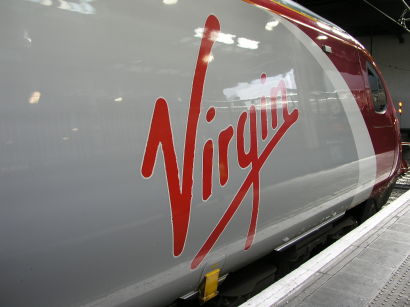TRANSPORT SECRETARY Patrick McLoughlin has told the House of Commons that negotiations over a continuation of Intercity West Coast are now formally under way with Virgin Trains, but the terms of any future contract have yet to be ironed out. Labour has claimed that the problems with the last franchise competition had been known much earlier than has been officially admitted.
Mr McLoughlin said that negotiations had now 'commenced', but also acknowledged that the DfT's subsidiary Directly Operated Railways is still standing by, in case plans for Virgin to continue on West Coast do not succeed.
The DfT is now planning a three-stage exit from the West Coast crisis. The first is a contract of between nine and 13 months starting on 9 December, for which the preferred operator is Virgin, and which appears to be permissable under European procurement law.
The second will be an 'interim agreement', open to any bidder, which is intended to bridge the gap until the third stage, when a long-term West Coast contract can be awarded.
He also conceded that three other franchise competitions -- for Essex Thameside (currently c2c), Great Western and Thameslink -- have been officially 'paused' until the results of two inquiries into the West Coast collapse are known.
The terms of reference for both these inquiries have now published, and Mr McLoughlin told MPs: "The first of these is an inquiry led by Sam Laidlaw, the chief executive of Centrica. He is the lead non-executive director on procurement across Government and the lead non-executive director of the departmental board. His review is examining what happened during the West Coast procurement and why. It will establish the lessons to be learned. I have asked for the initial findings by the end of October and expect the full report by the end of November.
"The second review is looking at the implications of the flaws on the west coast procurement for the rest of the franchising programme. This review is being led by Richard Brown, a highly respected industry figure and the chairman of Eurostar. My expectation is that the Brown review will report no later than the end of the year on lessons for the future franchising programme, so that it can be resumed as soon as possible."
The transport secretary also made it clear that the Government is not considering renationalisation, except as a last resort. He insisted: "I would like to take this opportunity, however, to restate the Government’s commitment to ensuring that we continue to have private sector innovation and investment in the railways.
"Since privatisation, the number of passenger miles travelled has nearly doubled. This growth brings significant benefits to the country’s economy and to the environment, relieving congestion and improving connectivity for businesses, commuters and leisure travellers. Passenger satisfaction is up, and so is punctuality. I want to see these benefits continue."
The statement was met with a critical response from Labour, whose shadow transport secretary Maria Eagle said the crisis had been a "yet another staggering example of the monumental incompetence of this shambles of a Government. It is a failure of policy, a failure of process, a failure of ministerial oversight and a failure of ministerial leadership".
Ms Eagle also claimed that the problems had emerged well before 3 October, when the competition had been cancelled.
She said: "It is incredible that Minsters continue to maintain that these problems only came to light late in the day, just before they made that midnight announcement less than two weeks ago. We know that Ministers were sent a report warning of precisely the problems that led to the competition being cancelled five days before the contract was awarded.
"Today was the opportunity for the new Secretary of State to begin to put things right, yet he has failed his first test and announced a way forward that adds to the chaos and confusion and risks even greater costs to taxpayers, replacing one franchise competition with three, opening up the prospect of three owners in three years, increasing the risk of further legal action and further costs to taxpayers, and adding to the uncertainty for passengers and staff."


